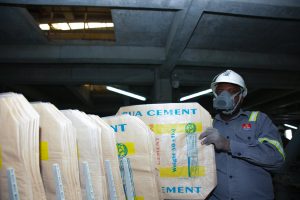By Business A.M.
Despite recording a higher year-on-year input costs, BUA Cement Plc, started the financial year 2023 with an improved balance sheet and strong core earnings as sales grew by 9.66 per cent to N106.35 billion in March 2023 from N96.98 billion as at March 2022.
The second largest cement manufacturer in Nigeria by total installed capacity also reported net income earning of N26.8 million compared to N33.14 million recorded in the corresponding period of 2022. .
In the first quarter ended March 31, 2023, the company’s basic earnings per share from continuing operations stood at N0.79 compared to N0.98 posted a year ago.
Regarding its operation expenses, BUA Cement disclosed that the sum of N42.50 billion was spent on fuel and raw materials as revenue increased even amid the macroeconomic headwinds. This, the company said, is significantly higher, compared to N27.58 billion spent on fuel and raw material in the corresponding period of the first quarter of 2022.

BUA Cement attributed the low cost margin to effective cost controls and sharp sales growth.
“The good thing is that the 14.27 percent uptick in input costs is lower than the March inflation rate of 22.04 percent,” the company stated.
It is noteworthy that the elevated cost of production in the cement production industry has been attributed to the uptrend in natural gas prices globally due to the geopolitical risks stemming from the Russia/Ukraine war. Foreign exchange scarcity, insecurity, poor infrastructure drive and weak housing policy, have also been identified as other factors that have led to significant increases in production costs.








